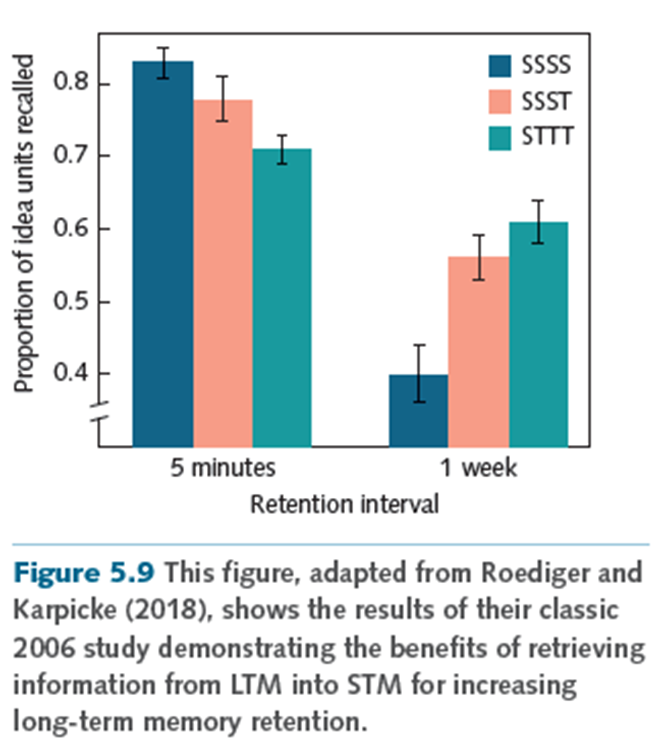Case study - the retrieval-practice effect
1/8
There's no tags or description
Looks like no tags are added yet.
Name | Mastery | Learn | Test | Matching | Spaced |
|---|
No study sessions yet.
9 Terms
What was the aim of the retrieval practice study conducted at Washington University
To investigate whether rereading or retrieval practice is more effective at improving long-term retention
What did participants do in the SSSS condition
They read a 250-word science passage four times over four 5-minute blocks (about 14 times total)
What did participants do in the SSST condition
They read the 250-word science passage three times (about 10 times total) and completed one 5-minute recall test
What did participants do in the STTT condition
They read the passage once (about 3.5 times) and then spent three blocks trying to recall the content
What were the short-term results of the study (after 5 minutes)
Participants who reread the passage more (SSSS group) recalled more information shortly after learning
What were the long-term results of the study (after one week)
Participants who practiced retrieval (especially STTT group) recalled significantly more information after one week

What is the "retrieval-practice effect"
The phenomenon where effortfully recalling information strengthens memory traces, improving long-term retention
Why is retrieval practice more effective than rereading for long-term memory
Because repeated retrieval re-encodes the memory, making it more durable and easier to access later
What does the study suggest about using rereading as a study method
Rereading may help in the short term but is less effective for retaining information long term